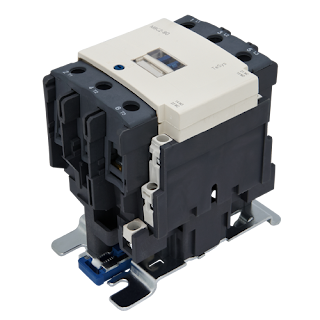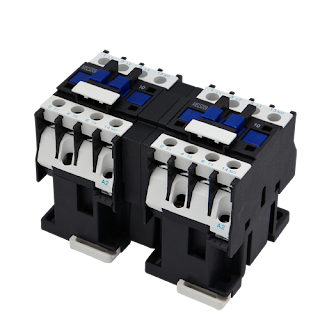A
contactor is the major part in an electrical circuit. It can stand on its own
power control device or a part of a starter. Electric contactors are mainly utilized to connect and break power
supply lines that runs through power lines or it repeatedly establish and interrupt
electrical power circuits. You will find its use in light loads, complex
machine control. Between the control circuit and power circuit it is frequently
considered as an intersection point as it is controlled by the control circuit.
It even controls the circuit between powers and loads.
Contactors
are switching devices that are electrically controlled and are used for
switching electrically. The basic operation of this is quite similar to a relay.
Short circuit or overload protection cannot be provided by them but they can
break the contact when coil excites.
Construction of a Contactor
The
electric contactor mainly constitute
of two iron cores, where one is fixed and the other one is the movable coil and
is an insulated copper coil. Here on the fixed core the copper coil is present.
For power connection there are six main contacts. In this three are fixed cores
and the other three are movable cores. From pure copper these contacts are made,
and to withstand high starting current and temperature the contact points are
made from special alloy. Auxiliary contacts a spring which is located between
coil and the movable core.
The three main parts are-
Enclosure
It
acts like an insulator and protector, which from any electrical contact, dust;
oil, etc protects the circuit. It is made from various materials like Bakelite,
Thermo setting plastic, Nylon 6, etc.
Coil
It
provides a force which is needed to close the contact. The coil is even
referred as an electromagnet. To safeguard the coil and contactor an enclosure
is used.
Contacts
The major function of Fuji magnetic contactor is that it passes the current to different parts of the circuit. They are then classified into power contacts, contact springs and auxiliary contacts. Here each of the contacts has its own functions, which in principle of operation of the contactor is properly explained. Follow us on Twitter






No comments:
Post a Comment